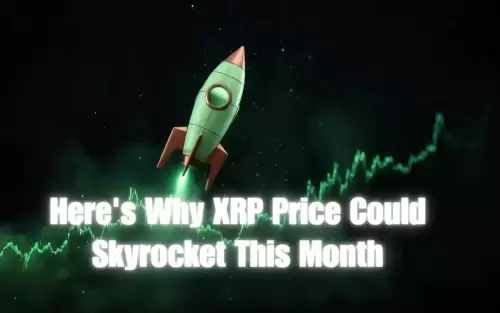 |
|
 |
|
 |
|
 |
|
 |
|
 |
|
 |
|
 |
|
 |
|
 |
|
 |
|
 |
|
 |
|
 |
|
 |
|

Few assets today stir up as much conviction—and controversy—as Bitcoin. But calling it a hedge against inflation in 2025 is more complicated than it sounds.
Between its fixed supply, surging institutional demand, and sky-high volatility, Bitcoin looks less like gold (CM:XAUUSD) and more like a high-risk insurance policy that might pay out during an economic meltdown.
At the core of Bitcoin's inflation narrative is its hard cap of 21 million coins. There’s no central bank printing more. That scarcity, especially paired with halving events like the one in April, is designed to slow supply even more over time.
But scarcity alone doesn’t make an asset a hedge. It’s the relationship between supply, demand, and economic stress that counts. When inflation fears spike and fiat currency weakens, demand for alternative stores of value can rise—ultimately amplifying Bitcoin's price.
In the realm of institutional investment, Bitcoin has seen some serious buy-in in 2025. Strategy (formerly MicroStrategy) (NASDAQ:MSTR) now holds over 538,000 BTC—nearly $47 billion worth. Metaplanet (JP:3350) is close behind, aiming to hit 21,000 BTC by 2026. Even the State of Wisconsin's pension fund allocated $160 million to spot Bitcoin ETFs.
Speaking of ETFs, they're exploding in popularity. U.S. inflows are projected to hit $3 billion this quarter, and BlackRock (NYSE:BLK) is now including Bitcoin in its model portfolios.
For all the optimism, Bitcoin is also known for its volatility. It recently soared above $109,000 in March, only to plunge below $75,000 a few weeks later. As of writing, it's trading at around $88,000.
That kind of price instability might not bode well for most investors, especially during times of inflation.
And then there's the issue of centralization. Just five mining pools control two-thirds of the Bitcoin network, while a tiny handful of wallets hold nearly all of the cryptocurrency's circulating supply.
So, is Bitcoin a hedge against inflation? It has some of the ingredients—scarcity, portability, and global access. But ultimately, it's still a volatile bet. It's less like gold and more like holding Tesla (NASDAQ:TSLA) stock in the middle of a currency crisis.
If inflation gets really bad and the global economy falls into a deep recession or depression, then Bitcoin might indeed soar to new highs. But there's also a chance that it could sink even lower. It's not a hedge; it's a gamble with potential for huge upside—or devastating downside.
At the time of writing, Bitcoin is sitting at $94,739.
免责声明:info@kdj.com
所提供的信息并非交易建议。根据本文提供的信息进行的任何投资,kdj.com不承担任何责任。加密货币具有高波动性,强烈建议您深入研究后,谨慎投资!
如您认为本网站上使用的内容侵犯了您的版权,请立即联系我们(info@kdj.com),我们将及时删除。
-

-

-

- 以太坊,L2提款和权力下放:纽约人
- 2025-08-07 07:06:53
- 以太坊的重点转移到更快的L2提款中,以获得更好的用户体验和分散性,在不断发展的生态系统中平衡速度和安全性。
-

- 雪崩与Ruvi AI:每日销售讲述了加密中断的故事
- 2025-08-07 06:00:43
- 雪崩失去了地面吗? Ruvi AI的爆炸性预售和创新的AI Super App在加密货币空间中转向挑战性的既定参与者。
-

-

- 北极Pablo硬币:乘坐通缩扭曲骑模因硬币波
- 2025-08-07 05:56:02
- 北极Pablo硬币的预售很热,并由放气模型推动。早期的投资者正在看到巨大的收益,但不仅仅是模因炒作吗?让我们潜水。
-

- XRP价格飞涨?解码加密货币的下一步行动
- 2025-08-07 05:45:15
- XRP会飙升吗?我们深入研究了最新的发展,潜在的SEC和解和鲸鱼活动,以分析XRP的价格轨迹。
-

-

- 大鲸,山寨币和重型交易:什么在转移加密货币市场?
- 2025-08-07 05:23:08
- 潜入加密鲸鱼和山寨币运动的世界。发现塑造市场格局的最新趋势,主要见解和主要交易。






























































